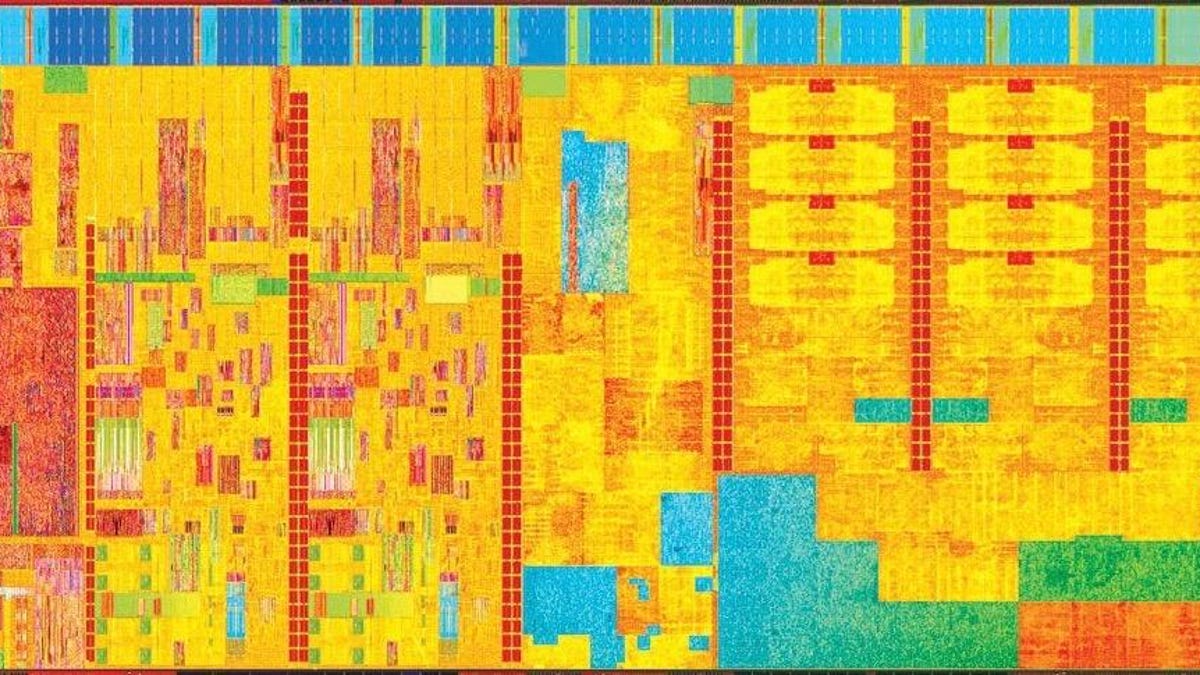Intel halts some chip patches as the fixes cause problems
The chipmaker's updates were meant to fix the Meltdown and Spectre design flaws, but have been causing computers to unexpectedly reboot.

Intel's Core M processor, in the Broadwell chip line. The company halted updates to Broadwell and Haswell chips on Monday.
Intel pumped the brakes on updates to some of its processors Monday, telling phone and computer makers as well as users to stop updating systems until Intel finishes investigating why the patches were causing devices to reboot unexpectedly.
The company recommends that manufacturers and users "stop deployment of current versions, as they may introduce higher than expected reboots and other unpredictable system behavior," said Intel Executive Vice President Navin Shenoy in a blog post.
The updates were meant to fix the Spectre and Meltdown design flaws, but now Intel says they cause too many of their own problems to install for the time being.
Intel's decision to pause the updates comes amid criticism from technical experts of the industry's approach to patching Spectre and Meltdown. Earlier in January, Windows halted updates to computers with chips made by AMD when reports surfaced that some computers shut down and couldn't be rebooted after users installed the updates.
Intel has also faced concerns the patches will slow down chip performance. It said earlier this month that speeds on patched chips could take a hit of 6 percent or less. But when carrying out some more intensive tasks, like browsing the internet on multiple tabs, users could see slowdowns closer to 12 percent on computers running with patched chips, Intel found.
Shenoy said Monday the company has figured out why the patch is causing unexpected reboots for some of the affected chips, and it will use that information to release an updated patch in the future. For now, leaving processors unpatched means chips still have the Spectre and Meltdown design flaws. The flaws make it possible for hackers to access sensitive information, including passwords and encryption keys, from a chip's memory.
The announcement doesn't mean regular computer users should turn off automatic updates, like Windows Update. That's because manufacturers deliver the Spectre and Meltdown updates to the chips through a different program. To learn what updates you might need, see CNET's list of Spectre and Meltdown updates. For more information on how to update a PC with a vulnerable chip, see CNET's guide on keeping Windows computers safe from Meltdown.
"We continue to urge all customers to vigilantly maintain security best practice and for consumers to keep systems up-to-date," Shenoy said.
Intel first acknowledged the problem more than a week ago, saying chips in the company's lines called Broadwell and Haswell were causing problems after receiving updates. The company said Thursday newer chip models called Ivy Bridge, Sandy Bridge, Kaby Lake and Skylake are also affected.
On Sunday, Linus Torvalds, an influential software developer known for creating Linux, which underpins systems like Android and Chrome OS, repeatedly called the Meltdown updates "garbage" in a message on Sunday.
"I think we need something better than this garbage," he wrote.
In response to Torvald's remarks, Intel said in a statement, "We take the feedback of industry partners seriously. We are actively engaging with the Linux community, including Linus [Torvald], as we seek to work together on solutions."
First published Jan. 22, 1:02 p.m. PT.
Update, 2:21 p.m.: Adds comment from Intel.
It's Complicated: This is dating in the age of apps. Having fun yet?
Tech Enabled: CNET chronicles tech's role in providing new kinds of accessibility.

